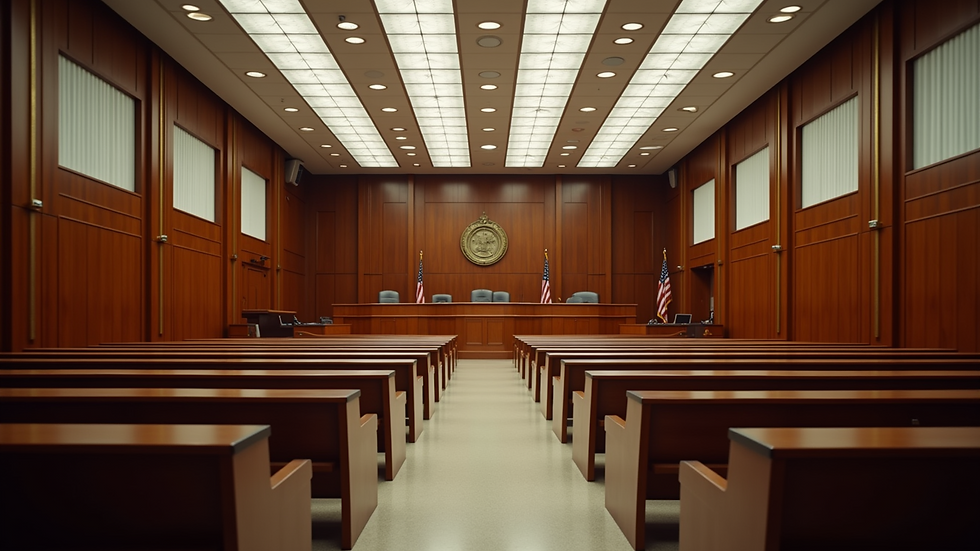Understanding Self-Defense Laws Across All 50 States and When It May Cross Legal Boundaries
- SheepDog Society Admin.

- Aug 23
- 3 min read
Self-defense is a basic human right that enables people to protect themselves from danger. However, the self-defense laws differ widely across the United States. Knowing these laws is vital for anyone interested in martial arts, self-defense, or gun ownership. This post will examine when self-defense actions may cross legal lines and provide an overview of regulations across all 50 states.
The Concept of Self-Defense
Self-defense generally means the right to use a certain degree of force to shield oneself from immediate danger. But what is "reasonable force" can change based on various factors, including local laws. For instance, if someone feels threatened but has the chance to escape safely, using deadly force might be considered excessive.
Key factors that influence the legality of self-defense include:
Perceived Threat: How serious the danger appears to the individual.
Level of Force Used: Whether the response was proportional to the threat.
Context: The overall situation leading to the defensive action.
Understanding these elements is crucial for anyone practicing self-defense techniques, as missteps can have serious legal consequences.
When Does Self-Defense Break the Law?
While self-defense is a legal right, some scenarios can lead to criminal charges. Here are common situations where self-defense may cross legal boundaries:
Excessive Force: If someone responds to a threat with more force than necessary, they can face legal action. For example, if an assailant threatens with fists and the defender fires a gun, this could lead to severe penalties.
Retaliation: If an individual continues to confront an attacker after the immediate threat has ended, their actions may be seen as revenge rather than self-defense.
Instigating a Fight: If someone provokes a fight and then claims self-defense, they may lose legal protection. Courts look closely at the person’s role in escalating the conflict.
Unlawful Weapons: Using illegal weapons in a self-defense situation could bring charges, regardless of the context.
Duty to Retreat: Some states require individuals to attempt to escape a threatening scenario before using force. Not following this law may lead to prosecution.
Self-Defense Laws by State
Understanding the specific self-defense laws in your state can significantly influence how you approach personal safety. Here is a brief overview of self-defense laws across the U.S.:
Alabama
In Alabama, individuals can use deadly force if they reasonably believe it necessary to prevent serious harm or death.
Florida
Florida’s "stand your ground" law allows individuals to use deadly force without needing to retreat, even if escape is possible.
California
California has a "duty to retreat" law, meaning individuals must attempt to escape a threatening situation. However, they can still use deadly force if necessary to prevent imminent harm.
Texas
In Texas, individuals can use deadly force if they believe it is necessary for protection against serious harm. Notably, in 2022, Texas reported over 1,600 justifiable homicides related to self-defense.
New York
New York law requires individuals to retreat if safe to do so before resorting to deadly force. In 2021, around 50 cases led to self-defense claims, emphasizing the importance of understanding legal boundaries.
Illinois
Illinois mandates that individuals must retreat if it's safe before they can claim self-defense.
Michigan
Michigan has a "stand your ground" law, allowing individuals to use deadly force without a duty to retreat, emphasizing individual safety in high-risk situations.
Final Thoughts on Self-Defense Laws
Knowledge of self-defense laws is essential for anyone involved in martial arts, self-defense, or gun ownership. While the right to defend oneself is recognized across the nation, the details of these laws can differ vastly. Being aware of when self-defense can lead to legal trouble helps individuals make informed choices in dangerous situations. Always consult local laws and consider speaking with a legal expert if you have questions about your rights or obligations surrounding self-defense.










Comments